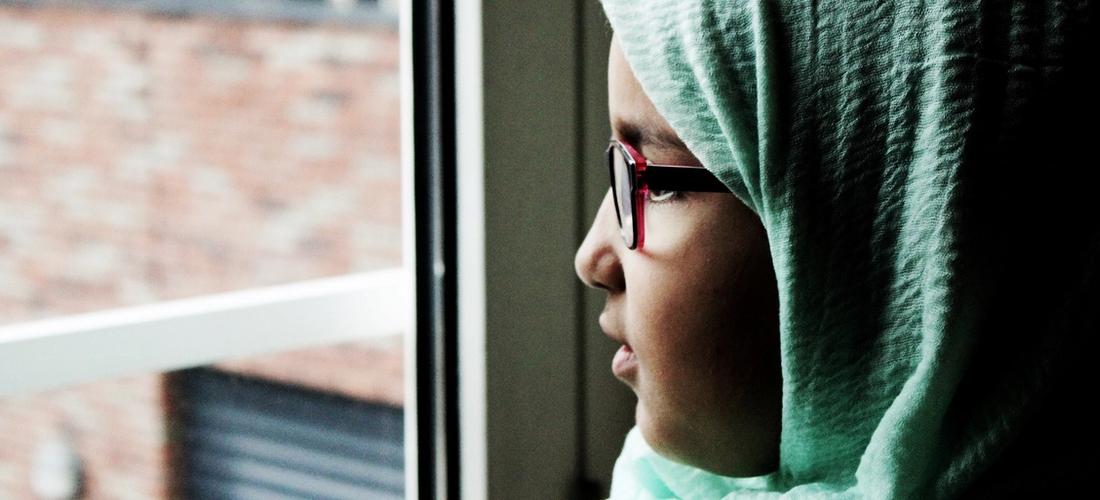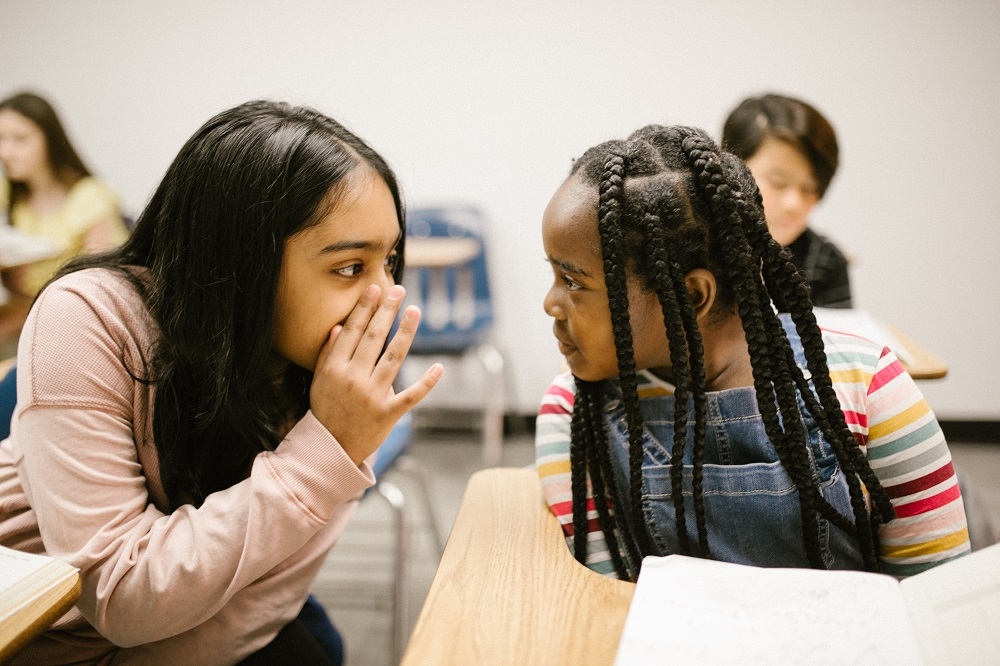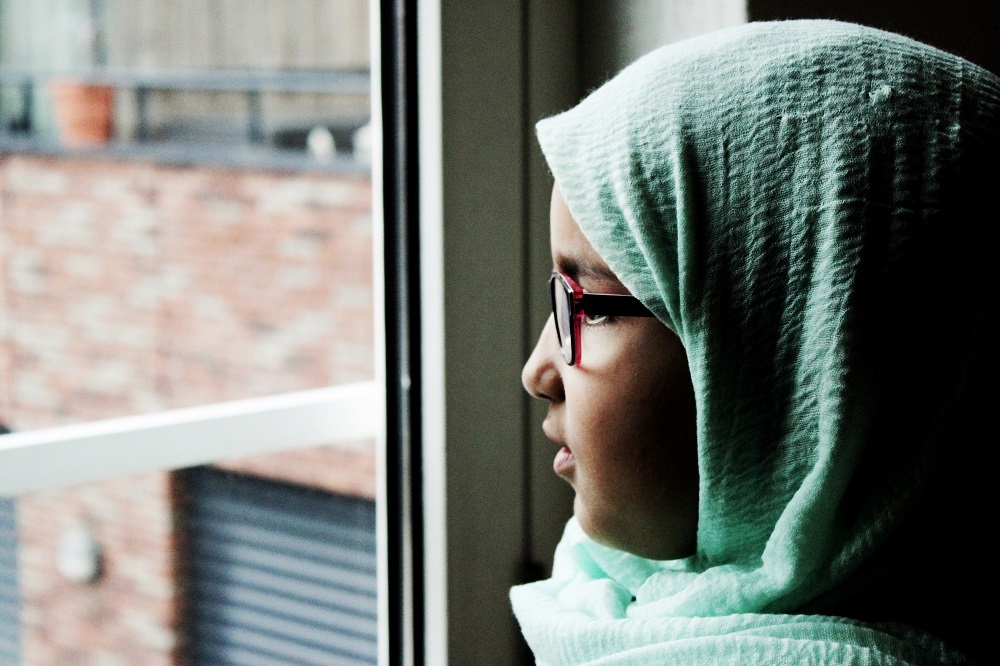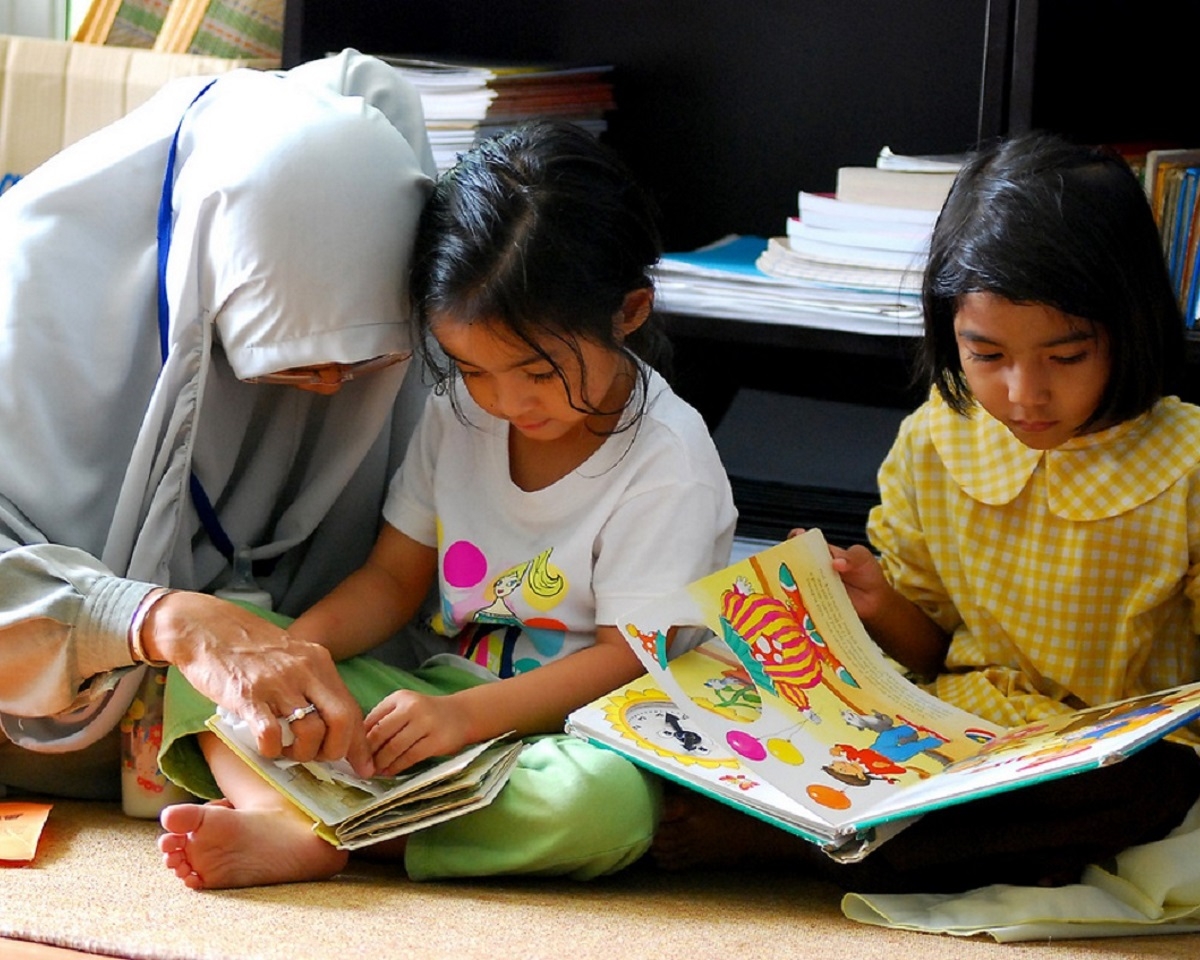Parenting While Muslim Through Two Decades of Post-9/11 Life
Current Events
|
Sep 9, 2021
|
7 MIN READ

Image source: Rachid Oucharia on Unsplash
This article is part of a special series exploring our stories as visibly Muslim women in the last two post-9/11 decades.
By Dr. Uzma Jafri
Ask anyone who knows me, and they will tell you that I’m a poor sleeper. The same people will report that they can take me on a road trip and snap photos of my lolling tongue while I sleep. Even the carpool commute used to knock me out cold, just not enough 20 years ago when I heard on the radio that a tower was struck by a plane in New York City. I fought sleep to turn up the volume because I must have heard wrong.

The aftermath of 9/11 for Muslims was immediate. A group called Al Qaeda was responsible and Islam, terrorist and Osama bin Laden became synonymous with the attacks. As we watched the second tower fall at my work, from a TV that had antenna and knobs that someone fished out of storage, my supervisor immediately turned to me and said, “I’m taking you home. There’s already a bomb threat at the hospital across the street.”
She knew I was either driven to work in the morning or rode the bus, and that I’d take another bus to campus 20 minutes away for class. “I don’t want anyone to hurt you,” she told me.
In those immediate days after 9/11, the war on terror began by inciting terrorized feelings within us.
(For more experiences of Muslim Americans post 9/11, tune in on Friday at 11:30 a.m. EST with Mommying While Muslim on Fireside.)
I was still shocked a mere six years ago when my son asked, “Ammi, what’s ISIS? Am I ISIS?” He was seven years old. My kids were taught to be proud of their Muslim American identity. The masjid was their first and favorite playground. They regularly schooled their Montessori instructors and classmates in Islam and shared their holidays with them. They’d never learned about any terror groups or the KKK because we shielded them from the news as well.

Image source: RODNAE Productions from Pexels
A student at the new public school my son was attending got wind of my son’s Islam and asked him if that meant he was ISIS. So I had to have a hard conversation with my kid when I myself had very little idea what the heck ISIS was at the time. We had just gotten hang of the last set of acronym-ed terrorists the CIA taught us to be fearful about.
Our kids, especially those born post 9/11 have never known a world in which they weren’t sized up against what the “terrorists” were doing. Raising them to be unapologetically Muslim and face all this has been a parenting challenge unique to all of us who became parents these past two decades.
You Never Seem to “Fit In”
When you’ve seen the Islamophobic acts carried out by adults against other adults (like we did in the past two decades), you’ll be damned if you let it happen to your kid. So, in an effort to normalize Muslims, some of us moms went into overdrive proving ourselves as American as apple pie. We did the PTA, book fairs, fall festivals, played classroom helpers, field trip chaperones, soccer team snack coordinators, party throwers, gift basket givers and school fundraiser champions. Basically, we did everything our mothers were too tired to do when we were in school because they were busy working to establish their children as Americans.
And we still weren’t invited to the playdates, parties and moms’ nights.
Oh sure, we were invited to stuff with the other Muslim moms. But not the non-Muslim ones who were glad to record our volunteer hours and point out just where we came up short. The very public accusations of our reportedly insular faith community refusing to assimilate truly had this really ugly undercurrent of exclusion that we suspect even our mothers faced when they came to this country.
So what happens when your kids don’t hang out with a lot of non-Muslim kids after school? They hang out even more with their masjid families, who don’t ask our kids to define “Taliban,” “ISIS,” or answer their teachers and classmates about what’s going on in this or that country they’ve never even visited and couldn't point out on a map without help.
As Muslim American moms, we’ve had to prep our kids after any attack, whether perpetrated by a known or unknown assailant:

Image source: Rachid Oucharia on Unsplash
1. Walk big like this (imitate Frankenstein).
2. Look over your shoulder like that (like someone really paranoid).
3. Tell the teacher if you get bullied (even though you suspect that will get your kid even more bullied).
4. Tell the teacher you’re going to vomit if she’s the one bullying and call mom from the nurse’s office (always have a backup safe adult).
5. For the older kids, continue to keep your head high and answer questions directly if you know, and suggest the kids or teacher look it up when you don’t.
6. Also for the older boys, don’t talk to any strangers at the masjid, especially if they ask you questions about other men at the masjid or if they’re white dudes who are “new Muslims.” (Muslim surveillance is NOT OVER.)
7. If you don’t feel safe, call me and I’ll come get you.
Of course we’d also email the teacher and principal about our expectations of how to keep our kids safe from bullies on campus with attached resources about Islam (and something peanut, gluten, lactose and pleasure-free to share with the class because that is how moms grease palms). The most common prep we ended up giving our kids after an incident was, curl up into the fetal position if you hear gunshots and keep your head tucked between your knees in a closet.
In America our students are more likely to die from guns on campus than from a Muslim terror attack. Dodged a bullet there. Whew.
You’re probably thinking, that’s so wrong, Uzma! I know, but in almost 20 years, there have been almost no Muslim American school shooters. There, I made it up to you.
Giving Our Kids the Tools They Need
There are amazing boots on the ground helping us help our kids deal with acts of violence and the trauma that comes second hand to Muslim Americans in emotionally damaging doses. The best way to help our kids combat Islamophobia is to prevent it from ever happening in the first place, and that can be done in the classroom. If their peers become allies early on, we hope they’ll never bully our kids and then stand up for them if someone does.
When we know better, we do better.
The Islamic Network Group has tons of resources for families, but it’s their educator resources I love because teachers can use the free non-biased curricula about Islam, find out about sharia law on their own rather than violating our kids’ First Amendment rights by asking them about it (yes, it’s truly illegal!), and invite trained speakers to present on various Islamic topics. They even have trainings for educators to teach Muslim students in a culturally sensitive manner.
The Council on American Islamic Relations has created a new teaching guide for educators to talk about the 20th anniversary of 9/11. As adults, it’s a traumatic remembrance for us because it’s the event that not only brought down two towers and killed more than 3,000 people (and gave us the longest war we didn’t see ending with an eventual withdrawal from Afghanistan), it incited violations of our civil liberties that continue in the present. So, hearing questions about it from our kids reopen deep scars, which we have to do to satisfy their curiosity and fear of being othered.

Image source: Pinterest
We can’t freak out when our kids do this. Share this guide widely with your teachers, and it's still not too late to do it this year! Make it even easier and schedule an annual 9/11 email a week before the day to your school administrators so they can disseminate it to their teachers.
One of my favorite resources is The Family Youth Institute. They’ve created an “Educator’s Guide to to Supporting Muslim Students Around 9/11.” Our teachers are overwhelmingly nice and do not mean harm. This guide is both sensitive and empowering to our educators to break the cycle of discriminatory trauma aimed at Muslim Americans.
Build a team of allies with your masjid moms and families, your kids’ classmates and both teachers and administrators. More conversation around 9/11 is how we get through it, as hard as it is for a lot of us. We’d love to say that things are better 20 years later, but in many ways they remain the same. The difference is that now we are fully awake and able to set the channels straight for our kids.
Pump up the volume, moms. May Allah (S) protect all of our children and families. Ameen.
Dr. Uzma Jafri is originally from Texas, mom to 4 self directed learners, a volunteer in multiple organizations from dawah resources to refugee social support services, and runs her own private practice. She is an aspiring writer and co host of Mommying While Muslim podcast, tipping the scales towards that ever elusive balance as the podcast tackles issues second generation Americans have the voice and stomach to tackle.
Subscribe to be the first to know about new product releases, styling ideas and more.
What products are you interested in?

